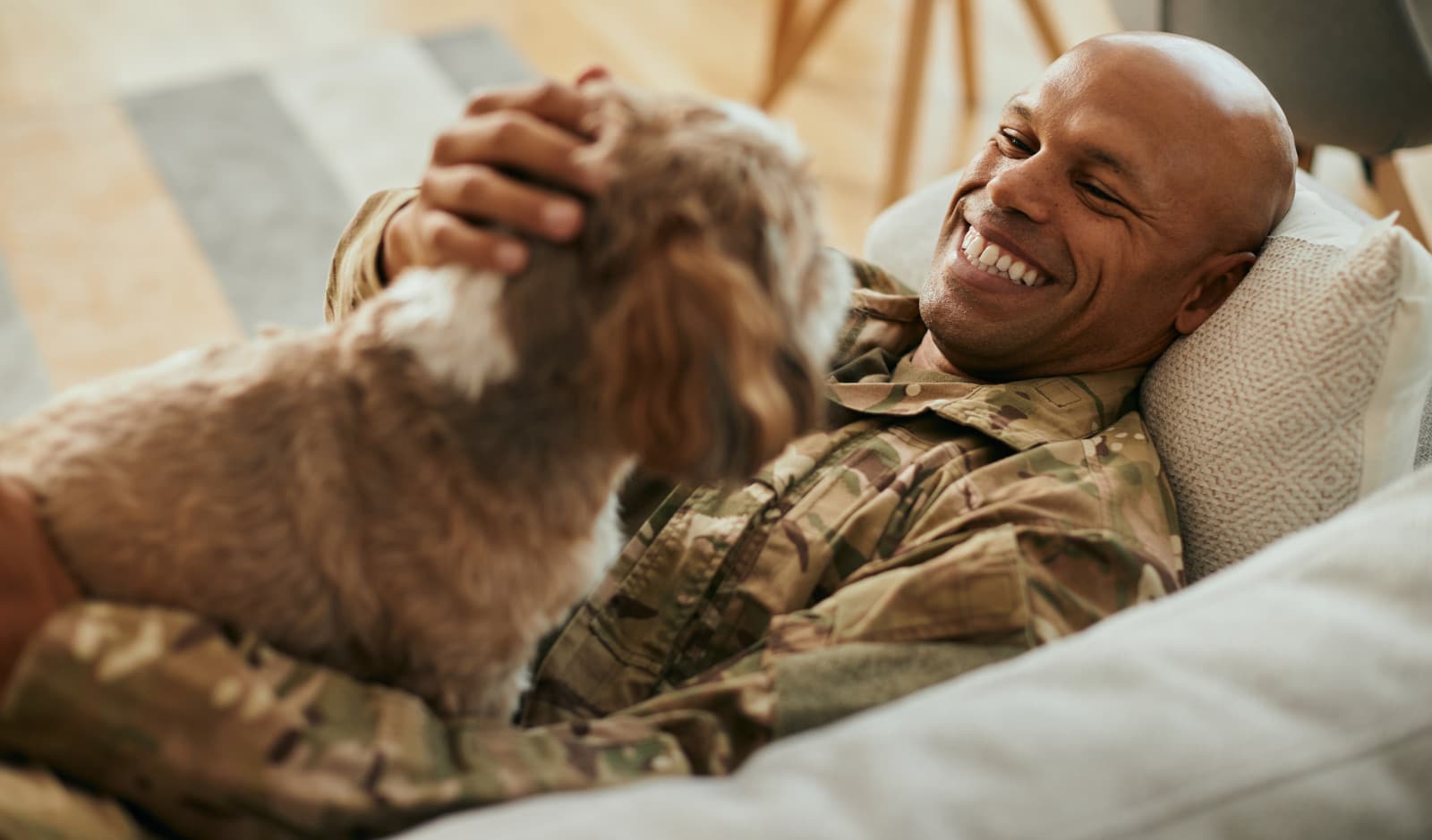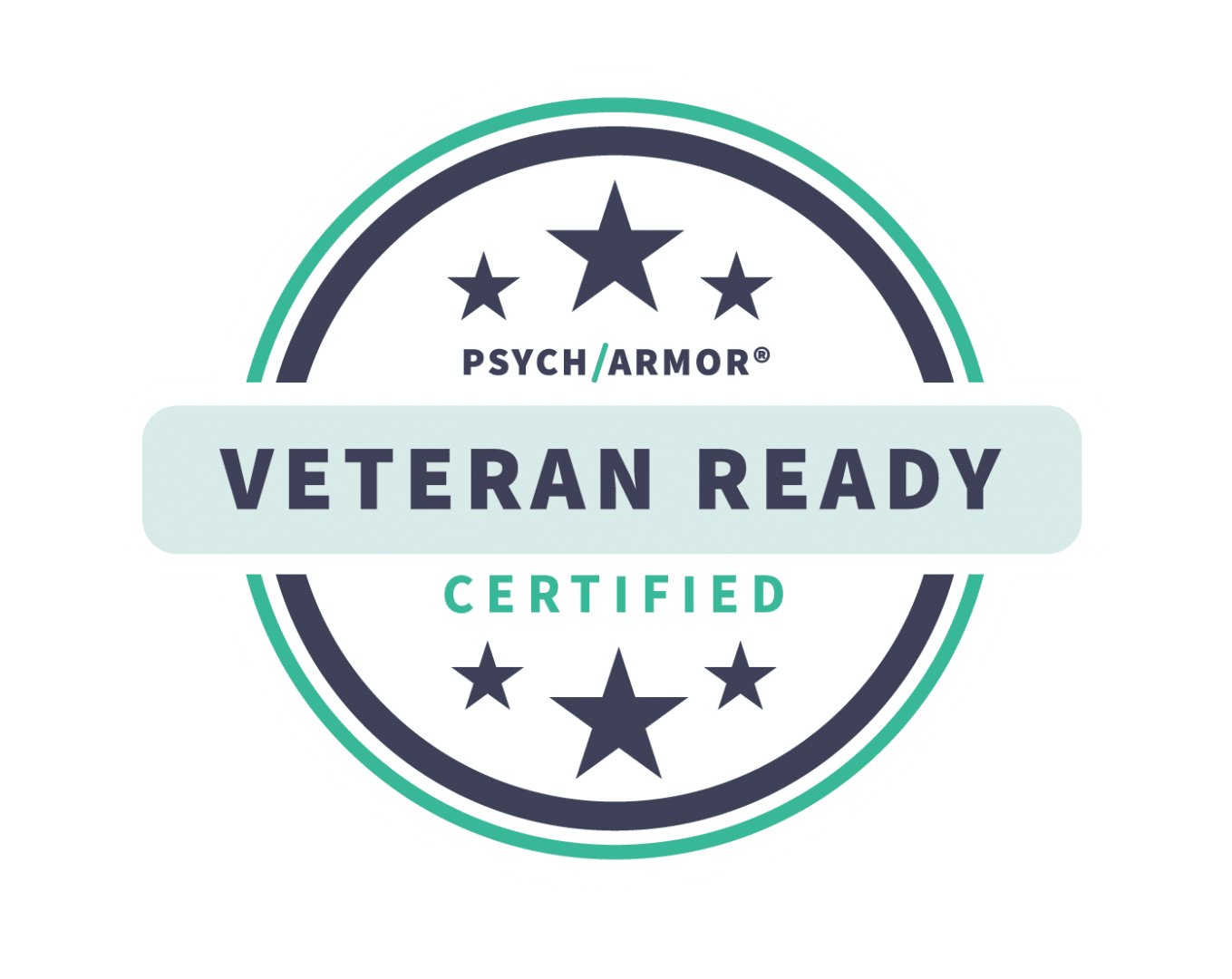Home | Specialized Treatment for Veterans
Veterans Care
Specialized Treatment for Military Veterans
As a participating provider in the VA Community Care Network, we provide treatment for military veterans experiencing mental health and substance use disorders.

Specialized Addiction Treatment and Mental Health Services for Military Veterans
As a participating provider in the VA Community Care Network, we provide specialized treatment for military veterans experiencing substance use disorders and mental health issues.
Specialized Addiction Treatment and Mental Health Services for Military Veterans
As a participating provider in the VA Community Care Network, we provide specialized treatment for military veterans experiencing substance use disorders and mental health issues.


STR Behavioral Health – Silver Pines is proud to be a PsychArmor-certified “Veteran Ready” healthcare organization. We are committed to providing compassionate, evidence-based treatment options for addiction and mental health disorders among military veterans and their families.
Substance use disorders remain a major health concern among U.S. military veterans, especially when they co-occur with serious mental health issues like post-traumatic stress disorder (PTSD) and depression. In 2020, an estimated 26% of U.S. veterans had either a substance use disorder (SUD) or a diagnosed mental illness; among those veterans, 12% experienced both at the same time.1
Substance abuse issues and psychiatric disorders are common among both active military and former service members. Without treatment, these issues can have devastating impacts on veterans’ quality of life, long-term mental health, and their relationships with loved ones.
- 53% of veterans will struggle with substance abuse at some point in their lives.
- 7 out of every 10 U.S. veterans experience PTSD at some point in their lives.
- Veterans who suffer from co-occurring alcohol use disorder and PTSD are three times more likely to have attempted suicide than veterans without AUD or PTSD.
If you’re a former military service member struggling with addiction or mental health issues, asking for help takes courage and strength. It’s important to remember that you are not alone in your struggles, and you deserve quality care from people who understand exactly what you’re facing because they’ve been there.

Levels of Care

Detoxification
We provide U.S. veterans with medication-assisted detox services in a safe, supportive, and comfortable environment. Our detox program helps veterans safely navigate withdrawal from drugs or alcohol and prepare for addiction treatment and long-term recovery.

Residential Treatment (RTC)
Our residential treatment programs provide veterans with a safe, structured environment to focus on healing, addressing trauma, and building a foundation for lasting recovery.
Our Approach to Veteran-Centered Treatment for Military Veterans
- Evaluations and assessments provided by a board-certified psychiatrist who is a military veteran
- Weekly process groups focused on the unique challenges faced by military veterans, including coping with PTSD, reintegration into civilian life, and addressing military-specific traumas and experiences
- Dedicated Veteran Recovery Specialists who work directly with the veterans in our treatment centers

Our Four Prong Approach
Service
We understand that military experiences can impact and affect service members long after active duty. We help veterans address their experiences and process their emotions and trauma in balanced, healthy ways while respecting the unique context and perspectives veterans bring to the treatment process. Evidence-based therapies like cognitive behavioral therapy (CBT) and dialectical behavioral therapy (DBT) can be particularly effective in addressing PTSD and depression, two conditions that are prevalent among military members.
People
We understand that each veteran is walking his or her own path to recovery. By utilizing therapies like motivational interviewing and family intervention, we center each individual’s unique experiences and incorporate their family members and loved ones into their treatment journey.
Values
The values instilled during military service, such as discipline and resilience, are crucial in therapy. Twelve Step Facilitation (TSF) and the Community Reinforcement Approach (CRA) can reflect these values by promoting personal responsibility and community support, helping to align treatment with the veteran’s core values.
Transition
The transition from military service to civilian life can be a challenging time for many veterans. Therapies like motivational enhancement therapy (MET) and cognitive behavioral therapy (CBT) help veterans develop healthy coping strategies and adjust their mindset and emotions as they reintegrate into civilian life.Specialized Substance Use Disorder Treatment for Veterans
- Understanding Military Culture and Language
This includes familiarity with military rank structure, branch-specific terminology, and the significance of certain experiences like deployments, combat, or military training. - Recognition of Service-Related Traumas
Competency in identifying and treating conditions common in veterans, such as PTSD, Traumatic Brain Injury (TBI), and moral injury. We understand how these conditions may manifest differently in veterans compared to civilians. - Awareness of Military Transition Challenges
Recognizing and understanding the numerous challenges that can accompany a veteran’s transition back into civilian life, such as reintegration into family life, finding employment, and adjusting to a less structured environment. - Sensitivity to Hierarchy and Authority
Understanding how military culture’s emphasis on hierarchy and respect for authority can impact a veteran’s interactions with healthcare providers and their willingness to seek and accept help. - Knowledge of Military Resources and Benefits
Being well-versed in veteran-specific resources and services, like VA benefits and programs, and being able to help veterans navigate these systems.
- Awareness of Diversity Within the Military
Recognizing that the military is a diverse institution and that veterans come from a range of ethnic, cultural, and socioeconomic backgrounds. We acknowledge and respect each person’s unique background and cultural experiences and the ways those experiences may play a role in their treatment. - Understanding the Impact of Deployment on Families
Recognizing the challenges faced by families of veterans, including long separations, the stress of deployment, and the adjustments required during reunification. - Familiarity with Moral and Ethical Dilemmas Faced in Service
Understanding the unique moral and ethical challenges veterans may have faced, which can lead to complex feelings of guilt or moral injury. - Respect for the Veteran’s Strengths
Acknowledging and building upon the strengths and skills that veterans acquire during service, such as leadership, teamwork, and resilience. - Sensitivity to Stigma
Addressing the stigma often associated with mental health issues in the military and veteran communities and creating a safe, nonjudgmental space for veterans to seek and receive care.
LGBTQIA+ Veterans

We proudly support the diverse backgrounds and identities of our veterans, including those from the LGBTQIA+ community. It is our mission to provide a safe, supportive, and affirming environment for every veteran who walks through our doors, one where they feel their identity is respected and their healthcare needs are met with the highest standard of care. We acknowledge the unique challenges and adversities faced by LGBTQIA+ veterans, including experiences of stigma and discrimination, which can significantly impact their mental health and well-being.


Frequently Asked Questions
Yes. We offer several different types of trauma-based therapies, which are provided by extensively trained master’s level clinicians with unique insight into military-specific traumas and related PTSD.
We communicate with the VA for authorizations, medications, and progress, but only with each client’s written consent. Each client chooses which information is shared.
Yes, transportation is provided within 6 hours of the facility.
